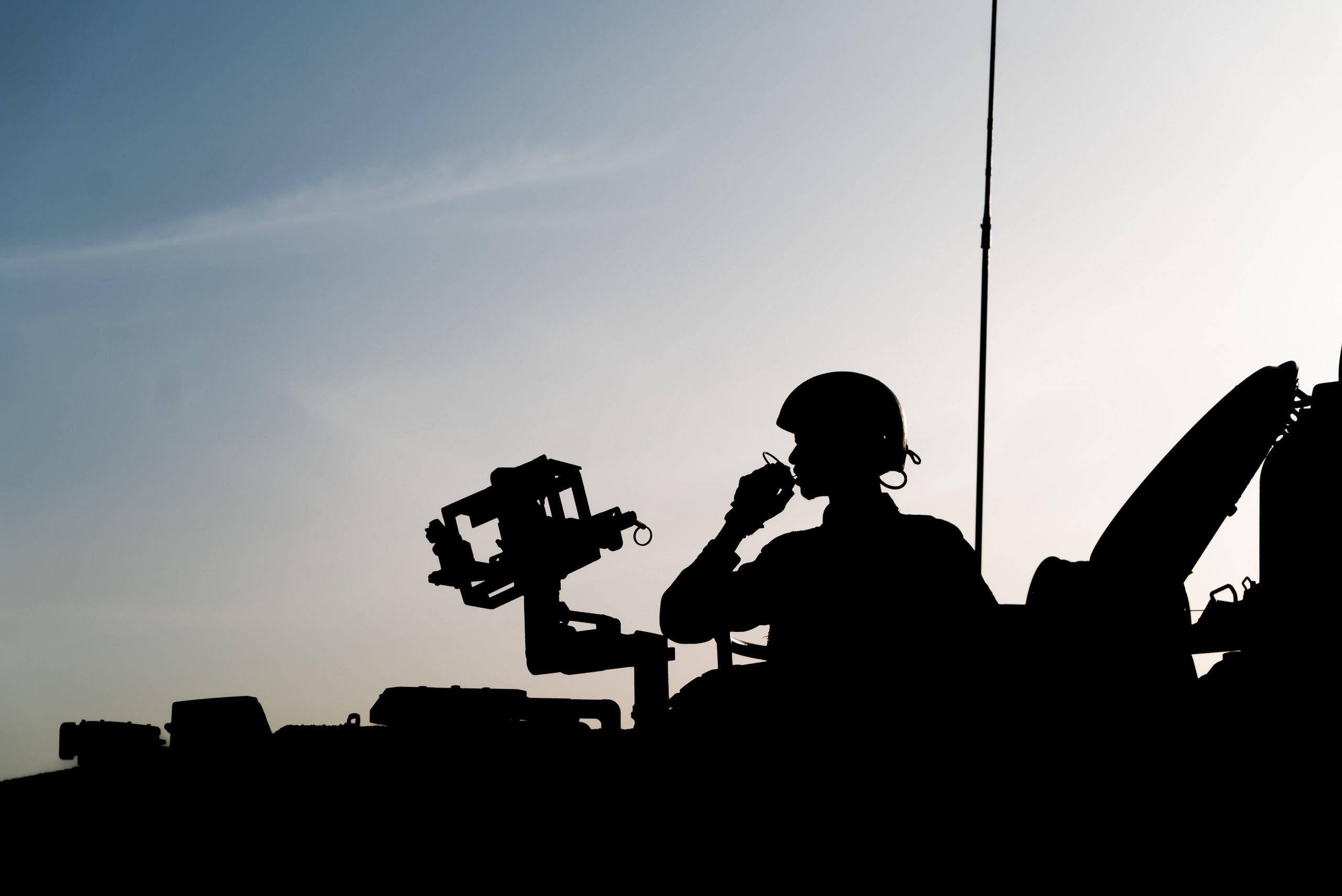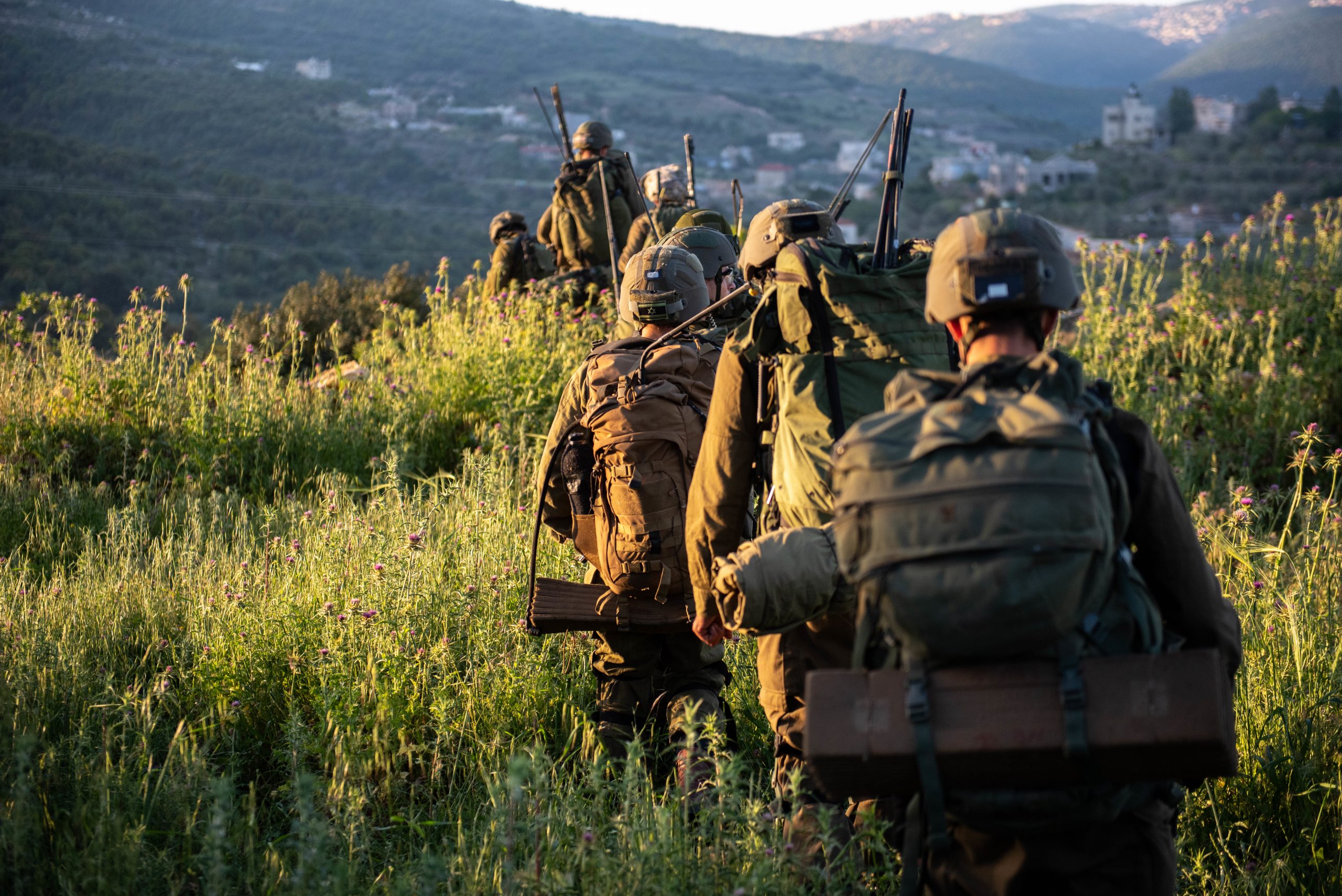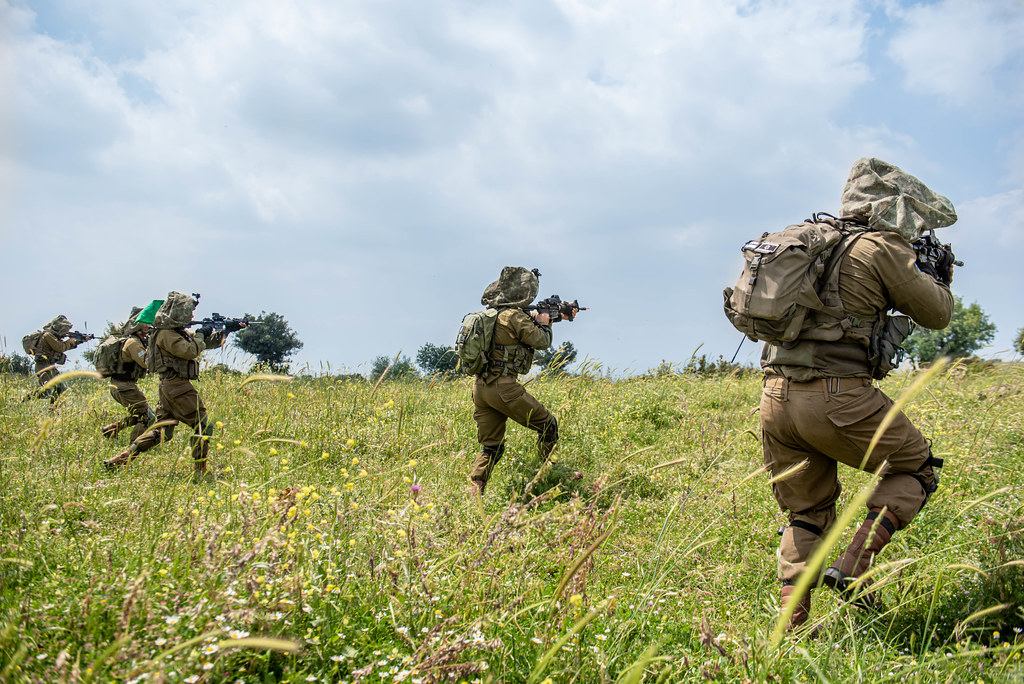Publications
INSS Insight No. 1584, April 3, 2022
In recent months, the Institute for National Security Studies has published two contradicting approaches regarding offensive maneuver warfare and its relevance to coping with present and future threats facing Israel. This article maintains that the IDF should engage in maneuver warfare, and to this end, it should maintain a competent land force, as stated by one approach. Yet, as the other approach states, maneuver warfare should be carried out in a context and way that serves specific strategic and operative objectives, given the challenges and the conflicts
In his article “Whoever Flees from Maneuver Warfare Will Not Win” (special publication, Institute for National Security Studies, December 23, 2021), Ofer Shelah, a former Knesset member and company commander in the paratroopers, argued that “fast and decisive maneuver is a necessary condition for shortening – and not prolonging – the campaign: whatever the definition of the achievement is, it is reached more quickly when all of the force is used from the outset of the war and not only as a possible subsequent option, engaging with the enemy and bringing the war to it.” In contrast, Col. (res.) Ron Tira, a former fighter pilot, in his article “Maneuver: ‘In Order To’” (INSS Insight No. 1548, January 11, 2022), argued that “in many of its conflicts over the last three decades, Israel did not seek to gain anything from its enemy, but simply to bring a swift end to hostilities Israel fell into that do not benefit it. At least some of these conflicts erupted due to a process of escalation that went out of control or to a miscalculation. In such situations it is certainly possible that it is more rational for Israel to choose a fundamental strategic state of defense and use its forces in a way that brings about a quick, low־cost end to the fighting.” Tira concluded that “it is important to guard against the desire for maneuvers come what may, and the decision must be examined in the light of the context. It is important to avoid seeing ground maneuver as part of an ethos, or to demonstrate that lessons have been learned.”
Tira rightly says that the decision to engage in maneuver warfare needs to be in the context of events and not as a test of courage or a default option, especially as Israel does not intend to conquer territories from its enemies for extended periods. Indeed, maneuver warfare should only be carried out when it optimally serves Israel’s strategic and operative objectives, unlike other alternatives that take a lesser toll in blood and money. In addition, an operative plan for a limited operation should not be a large־scale offensive action that has been scaled down and adjusted. This is a different plan, Tira wrote, and “the IDF toolbox also needs such plans.” In any case, he correctly wrote that the operative plan should strive to end the conflict quickly in order to reduce the harm to the home front. These correct premises, however, led the author to an incorrect conclusion, according to which maneuver warfare has almost become superfluous, except in a large־scale conflict. It may be, he noted, that Israel can achieve its objectives in actions that are below the threshold of war – especially as the duration of the conflict could be too short to prepare ground forces for effective maneuvers.
It is true that Hezbollah and Hamas pose a serious threat to the home front through their arsenals of missiles and rockets (some of them precision־guided), which could impair the IDF’s recruitment of reserve forces, disrupt its operational activity, and even affect decision־making processes on the national level. The enemy has also improved its ability to penetrate Israeli territory. This threat requires Israel to operate within a short timetable to remove the enemy, using all the tools at its disposal. The first most available and most flexible of them is the air force, which can attack thousands of targets a day, and standoff fire forces.

The IDF currently has impressive and extremely effective firepower and intelligence capabilities that operate in coordination, as has been demonstrated in conflicts and in the “war between the wars.” Fire support is essential, as it is capable of striking and disrupting the enemy’s operative capabilities and destroying its strategic assets, which will deter it from another campaign for years to come and will force it to invest its resources in repairing the damage.
But the achievement that the fire support will bring about during the fighting itself will be certainly limited. First, the enemy has adapted and, in effect, has built its military force so that it can continue to launch and operate despite the impressive target production and destruction enterprise that the IDF has built. Second, after several days of fighting, the number of targets decreases. The IDF knows how to quickly destroy the list of preplanned targets that it has accumulated, while the enemy “catches on quickly” and avoids exposure. This is not to claim that intelligence and precision fire will not bring about achievements. Sometimes a threat can be removed through the use of standoff warfare alone, as demonstrated in Operation Black Belt in 2019 for example. But usually a pattern develops that prolongs the duration of the campaign due to the difficulty of bringing about achievements using fire support and the reluctance of using other means. The quest to shorten the duration of the campaign as much as possible makes maneuver warfare an essential tool, whether as the main effort or as a supplement to the fire effort.
The key to success lies in combining fire support with maneuver warfare, at a fast rate of operation that poses a real threat to the survivability and functional capability of the enemy and could cause it to cease the campaign. The reason for this success is that maneuver warfare, by its very nature, maintains a presence on the ground. Even if the enemy has become accustomed to the fire support used against it and continues to fight, it is unable to predict the movement and actions of forces on the ground that disrupt its activity, create a sense of being pursued, and diminish the firing that the enemy launches toward the home front. Furthermore, the capture of territory – even temporary – has cultural־psychological significance and influence among Israel’s enemies, as territory is seen as having historical, cultural, and religious value. Only maneuver warfare can hold territory and thus create cognitive pressure on the enemy.
Maneuver warfare is important also due to the need to escape from the “dead end,” a concept coined by Maj. Gen. Tamir Yadai, commander of the Ground Forces, and Brig. Gen. Eran Ortal, commander of the Dado Center. The series of operations that the IDF has waged in the past two decades – all using a deterrent logic and some lasting longer than Israel expected – have trapped the IDF in a vicious cycle of operating from one deterrent־erosive operation to the next, while the lack of willingness to use ground forces in these operations is known to its enemies and provides them with an advantage and defense.
Therefore, Israel must develop a decisive mode of operation that includes an effective defensive effort and that, in the words of Maj. Gen. Herzi Halevi, prevents the enemy from offsetting the achievements of the IDF’s offense through its own offensive measures, which can cause casualties. In essence, it is a combined campaign of maneuver warfare and fire support at a fast pace, because speed is critical for Israel due to the threat to the home front. Combined action enables the IDF to effectively strike the enemy’s forces, to deprive it of assets essential to its operational doctrine (missile launchers, command and control systems, and tunnels), and to reach an end state under conditions that are positive for Israel and perhaps will even shape a new, better reality.

Both Shelah and Tira agree that the IDF needs to carry out a significant reform of the ground forces so that its forces are relevant, and, most of all, fast and durable (protected), as Israel’s enemies will threaten the survivability of the maneuvering ground forces on the battlefield through explosive charges, anti־tank missiles, artillery, and additional capabilities.
The IDF must strengthen its ability to quickly mobilize its regular and reserve forces, which can be recruited and activated as combined combat teams that will quickly maneuver into the enemy’s territory and damage Hezbollah’s and Hamas’s military forces. These IDF forces will know to quickly move and transfer from arena to arena, to operate flexibly and engage in close multi־branch jointness with fire and intelligence, and to raid and kill the enemy in direct contact. As early as 2005, Lt. Col. Amir Baram, a former Paratroopers Brigade officer (and later commander of Northern Command) wrote that the main lesson from the training that his unit carried out is that “Hezbollah cannot be defeated without close contact.” This statement is still true today.
These combat teams will be able to locate and destroy the “vanishing enemy,” which avoids direct conflict with the army as much as it can and fortifies itself in tunnels and bunkers. In the words of Brig. Gen. Ortal, the combat teams will “turn on the light,” and expose the enemy, especially its missile launchers that are firing on Israel’s home front, and “extinguish the fire,” by destroying these systems and thus depriving the enemy of the main component of its operational doctrine.
The success of these forces depends first and foremost on high־quality, initiative־taking, determined and cunning commanders who lead the fighting, and the IDF must invest in maintaining and developing this set of commanders in both regular service and in the reserves.
Such maneuver warfare, which in a limited conflict has a narrow scope (a raid), is relevant and sometimes necessary due to the need to shorten the duration of the fighting and to reduce fire on the home front. In a large־scale campaign, where maneuver warfare is used with a large order of battle, creating a threat of losing territory – a strategic asset for all nations and states – losing sovereignty and survivability could even cause the enemy to agree to ending the fighting.
The context is important, and maneuver warfare must contribute to achieving the strategic objectives of the campaign. At the same time, however, any discussion of maneuver warfare, its scope, and its aims must start from the fact that the IDF has competent, willing, and skilled capability to maneuver on the ground, which it will use as needed.
Former Chief of Staff Gabi Ashkenazi has said that in the next campaign, the IDF must “defeat the enemy, defeat it quickly in such a way that at the end of the day no one will ask who won and who lost.” This command remains true, and to this end a campaign is needed that combines firepower, as precise as possible, and a maneuvering mass that harms the enemy in its territory, and creates pressure that it will not be able to withstand.
__________
* Gal Perl Finkel, research fellow at the Dado Center and captain (res.) in the Paratroopers Brigade “Arrows of Fire.”



